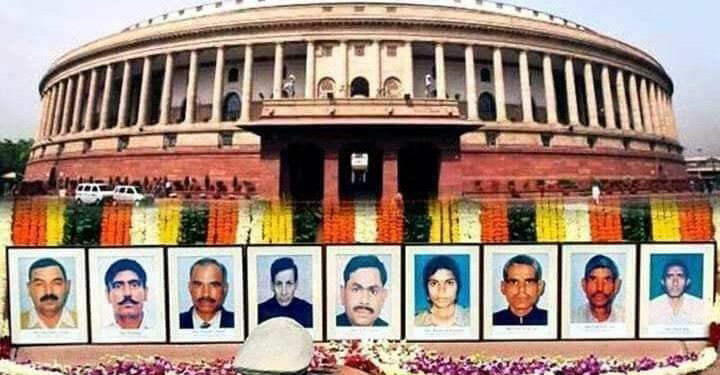It has been 20 years since five Pakistani terrorists attacked the Parliament, the supreme legislative body of India. While the attack had left the whole country numb and shook the public conscience to its core, it is still remembered as one of the most horrible days in Indian history. Well, there exists a reason for it.
13 December 2001- a dastardly Parliament attack:
On the 13th of December 2001, the Parliament- a temple representing India’s democratic values, suffered a massive attack. The five perpetrators of the Pakistan-based militant groups Lashkar-e-Taiba (LeT) and Jaish-e-Mohammed (JeM) infiltrated the premises of the parliament with a nefarious agenda to demolish India’s pride.
The terrorists entered the Parliament in a White Ambassador marked with fake stickers of the Home Ministry and Parliament itself. More than 100 people, including major politicians, were present inside the premises at that time. The terrorists breached the security barriers deployed around the Parliament complex while being heavily armed with AK47 rifles, grenade launchers, pistols, and grenades.
Constable Kamlesh Kumari Yadav, one of the staff members, became suspicious as they drove the car inside. First, she approached the suspicious vehicle but immediately ran back to her post to seal gate no 1 where she was posted. Realizing that they had been exposed, the terrorists opened fire. When the gunfight ensued, she narrowly escaped a suicide bomber. However, she succumbed to the gunshot wounds and died on the spot.
The firing by terrorists continued for about 30 minutes that led to the killing of nine people leaving 18 others injured. All five terrorists were neutralised outside the building.
Special cell cracks the case in 72 hrs.:
The then Deputy Commissioner of Police Ashok Chand informed that at the time of bloodshed occurred, he was at the office of the Special Cell. He further told that the anti-terror unit of the Delhi Police — Special Cell — which was set up in 1986 to prevent, detect and investigate cases of terrorism, organised crime and other serious offences in the national capital began investigation soon after the attack. It cracked the case in 72 hours and arrested four people in connection to the attack – Mohammed Afzal Guru, Shaukat Hussain, Afsal Guru and SAR Geelani. While two among them were acquitted, Shaukat Hussain was sentenced to life and Afzal Guru was sentenced to death. The death penalty was executed in Delhi`s Tihar Jail in February 2013.
The popular web series ‘Special Ops’, starring Kay Kay Menon, Vinay Pathak among others depicts the struggle of the special cell to nab the culprits who launched the attack on Parliament in 2001.
The deadly terror attack has had a lasting effect on Indian politics and has strengthened the country’s resolve to fight against terrorists.

























